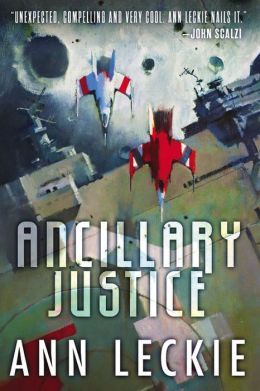Earlier this year it felt like I had a reading dry spell: one mediocre book after another. Feminist science fiction book club to the rescue! Ancillary Justice was the August selection and it reminded me of everything that can go right with good sci-fi.

Author: Ann Leckie
My GoodReads rating: 5 stars
Average GoodReads rating: 3.98 stars
Language scaling: B2+
Summary: The now-embodied AI of a huge starship travels across the empire they once served to exact revenge on the emperor.
Recommended audience: Sci-fi fans; in particular, fans of Asimov’s Foundation series, who might be interested in another vision of “Roman empire in space”
In-depth thoughts: The great technological marvel of the science fiction empire in question is ancillaries: human bodies used as a extensions of a starship’s AI, something like a miniature Borg collective. Leckie very skillfully navigates this perspective and, more than being a cool gimmick, this splintering of awareness is also an important story element. Leckie’s writing is also polished and economical, with enough details to keep the reader anchored but not so many you become overwhelmed; in a way, it’s exactly how you can imagine a very sophisticated AI would describe and process the world: picking out one or two concrete and salient details out of an input of thousands or even millions, but at the same time failing to make distinctions that humans can sort in an instant. (In this case, the AI has difficulty with all of the different gender markers in the assorted cultures they encounter.)
While the story is full of invented names and languages (always the case in space opera), the clear-cut prose should be relatively easily navigable by high intermediate learners.


